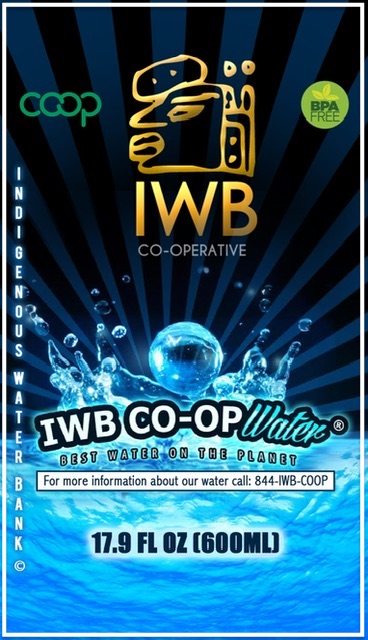LIFE BY DESIGN BLOGS

WHAT IS A LIFE COACH?
THE SIMPLEST ANSWER

NEW ARTICLE 6/23/24
What Is Tall Poppy Syndrome?
Tall Poppy Syndrome Is A Societal Attitude A Growing Phenomenon Occurring When People Are Resented, Excluded Or Criticized For Their Success And Achievements. Rather Than Celebrating The Achievements Of Someone For Their Accomplishments Or Success, They Are Cut Down, Berated And Belittled. An Individual Exhibiting Tall Poppy Syndrome May Say, “He Is Not Special Anyone Could Have Done That.” Today We May Call Them Hater’s But In Fact They Are Showing Signs Of Something Much More Serious.
Tall Poppy Syndrome Was First Coined By Susan Mitchell From Australia Who Released A Book In 1984 Called Tall Poppies. Susan Talked About The Challenges Successful Women Were Experiencing In The Workplace In The Eighties. Susan Explains In Detail How Women In The Corporate Arena Were Being Treated For Having Success In Their Industry Or Specific Field. Today, Especially In The Social Media World, Tall Poppy Syndrome Is Shown Among Spouses, Friends’ Family Members And Associates.
While Many Will Expect The Workplace To Be The Most Common Breeding Ground Of The Phenomenon, It’s Often Surprising That “Tall Poppy Syndrome” Is Most Common In Our Social Networks. Most People Experience The Phenomenon With Those In Their Most Intimate Circle, Resulting In Some Ceasing To Share Their Moments Of Happiness And Success For Fear Of Being Ridiculed, Resented Or Ostracized By The People In Their Inner Circle. Tall Poppy Syndrome Is Found Within Other Common Settings Such As Sporting Or Social Clubs And Workplaces.
Tall Poppy Syndrome Gets Its Name From A Story Told About King Tarquin The Proud, The Ancient Roman Tyrant, By The Historian Livy. Tarquin’s Son Sextus Was Infiltrating The Leadership In A Neighboring City And Asked His Father What He Should Do Next. Tarquin Did Not Say Anything But Went Into His Garden And Cut The Heads Off All The Tallest Poppies With His Sword. Sextus Took That To Mean He Should Destroy The Leading Aristocrats Of The City, Which He Did. Rome Then Easily Overtook The City.
Not Only Does Tall Poppy Syndrome Behavior Go Back To Ancient Times, But It Also Appears In Cultures Around The World. The Japanese Expression, “The Nail That Sticks Up Gets Hammered Down,” Refers To Something Similar. The Phenomenon Is Also Sometimes Described As “Crab Bucket Mentality,” Referring To The Behavior Of Crabs In A Bucket: A Lid Is Not Needed Because If One Gets Close To Escaping, The Other Crabs Will Pull It Back Down Into The Bucket.
Our Top Best Selling Offers

Tall Poppy Syndrome– Is A Common Social Phenomenon That Permeates Society. The Phrase Tall Poppy Syndrome Was Coined In Australia. There Are Some Common Symptoms And Behavior Associated With Tall Poppy Syndrome Such As:
- Loss Of Confidence
- Substance Abuse
- Insomnia
- Headaches
- PTSD
- Anxiety And Depression
Many People Who Are Successful May Struggle With Some Of These Symptoms Because Of Tall Poppy Syndrome And Not Even Realize Why? Many Successful People And Celebrities Have A Tough Time Accepting That People Close To Them Don’t Celebrate Their Wins And Victories. We Often Want The Ones We Love To Celebrate With Us And Not Be Envious Or Jealous Of Our Achievements And Accomplishments. I Want To Share The Reasons People Exhibit Or Show Signs Of Tall Poppy Syndrome.

Characteristics Of People Showing Tall Poppy Syndrome
Envy Can Come From People You Least Expect Such As Family, Close Friends And Even Spouses. People Often Try To Hide Their Feelings Of Envy Along With The Shame And Guilt They Are Experiencing.
Low Self-Esteem- Watching Others Achieve Success Can Trigger Feelings Of Inferiority Causing Low Self-Esteem. If A Person Believes They Are Not Capable Of Achieving Success They Begin To Devalue Themselves.
Resentment Develops When Painful Emotions Are Not Dealt With Effectively And Begin To Blame Others For The Pain They Are Experiencing.
Fear Is The Emotion That Arises In Individuals Who Have Experienced Trauma In The Past. Trauma Makes It Difficult For The Brain To Access The Part Of It That Manages Cooperative Social Interaction. So, They Become Unconsciously Triggered By The Success Of Others And Begin To Withdraw From The Person Who Can Self-Actualize.
Tall Poppy Syndrome Is The Beginning Of Mental Health Diagnosis Such As PTSD, Anxiety And Depression. If You Are Someone You Know Is Showing Symptoms Of Tall Poppy Syndrome, Please Contact Life By Design Coaching Network.
FEBRUARY ARTICLE 2024
What Is The Difference Between A Trauma Informed Coach and A Traditional Therapist?
Therapists Are The Front-Line Workers Of Mental Health Care. They Operate Under A Medical Model Of Care, Whereas Coaches Operate Under A Support Model. Therapists Work With And Treat Trauma. Trauma Informed Coaches Do Not Treat Trauma. They Are Simply Aware Of All The Nuances Of Collaborating With Clients Who Have Experienced Trauma.
Trauma Informed Coaching Is The Practice Of Understanding The Presence Of Past Trauma In A Client’s Present-Day Experiences, And How To Use It As A Guide For Resilience And Solution-Forward Coaching Strategies.
Often, People Will Need Therapy, As Well As A Coach To Support Them In Between Sessions. Other Times, Clients Have A Baseline Of Working With The Trauma, But Need Further Support To Make Positive Changes In The Present.
Here Is A Brief List Of What Coaches Can And Cannot Do.

What I Do As A Trauma Informed Coach:
⦁ Trauma Informed Coaches Anchor Their Work In The Present, Not The Past. They Focus On The Client’s Current Life And How Trauma Is Affecting Them Today. Their Aim Is To Utilize Coaching Strategies To Help Their Client(s) Build Up Their Strengths, Healthy Beliefs, And Positive Coping Strategies; Rather Than Just Extinguishing “Negative” Behaviors And Beliefs.
⦁ Coaches Serve As Guides, Mentors, And Support. They May Provide Education About Trauma And Recovery, Or Set Recovery Goals, But They Always Operate In A Client Led Manner.
What I Do Not Do As A Coach:
⦁ Coaches Do Not Prescribe Or Give Advice About Medication.
⦁ Coaches Do Not Treat, Diagnose, Or Assess Their Client’s Mental Health.
⦁ Coaches Do Not Work Outside Their Scope Of Competence – Coaches Do Not Collaborate With Clients Who Are At Risk Of Self-Harm Or Harming Others.
Therapy Vs. Tic Continued:
Specialization:
Trauma Informed Coaches Often Focus On Specific Modalities And Have Extremely Focused Areas Of Training. As A Coach I Specialize In Mindfulness, Meditation, And Cognitive Training Skills. In Comparison, A Therapist Most Often Has A Broader Spectrum Of Disciplines They Are Educated In, Which Are Usually Anchored In A Top-Down Approach (Working Through The Scope Of Cognition, Thoughts, And The Mind).
Collaboration:
Coaches Understand That Just As Trauma Can Be Complex, So Too Can Be Healing. Rarely Does One Form Of Recovery Work Resolve The Effects Of Trauma. Clients Often Need A Collaboration Of Methods, Such As Talk Therapy, EMDR, Art Therapy, Life Coaching, Somatic Experiencing, Etc. Coaches Often Encourage A Team Approach To Collaborating With Clients.
Furthermore, Trauma Informed Coaches Are Non-Clinical. They Do Not Treat Or Diagnose Clients. Therefore, They Have An Ethical Responsibility To Refer Their Clients To The Proper Resources When The Support They Need Is Outside Of The Coaching Wheelhouse Or Spectrum.
EAT HEALTHY AND IMPROVE YOUR LIFE

DRINK REAL WATER AND LIVE LONGER

IWB CO-OP WATER
